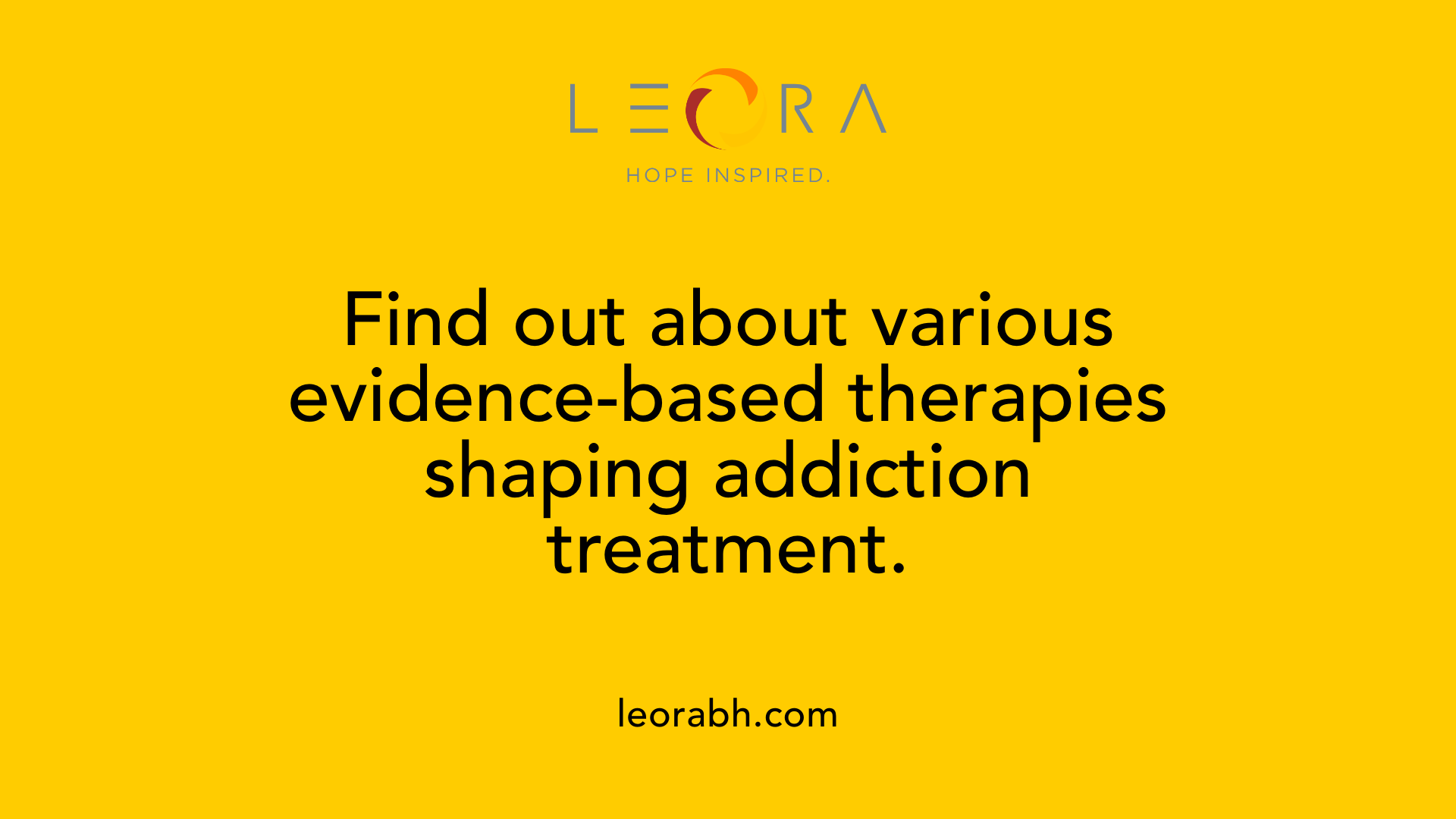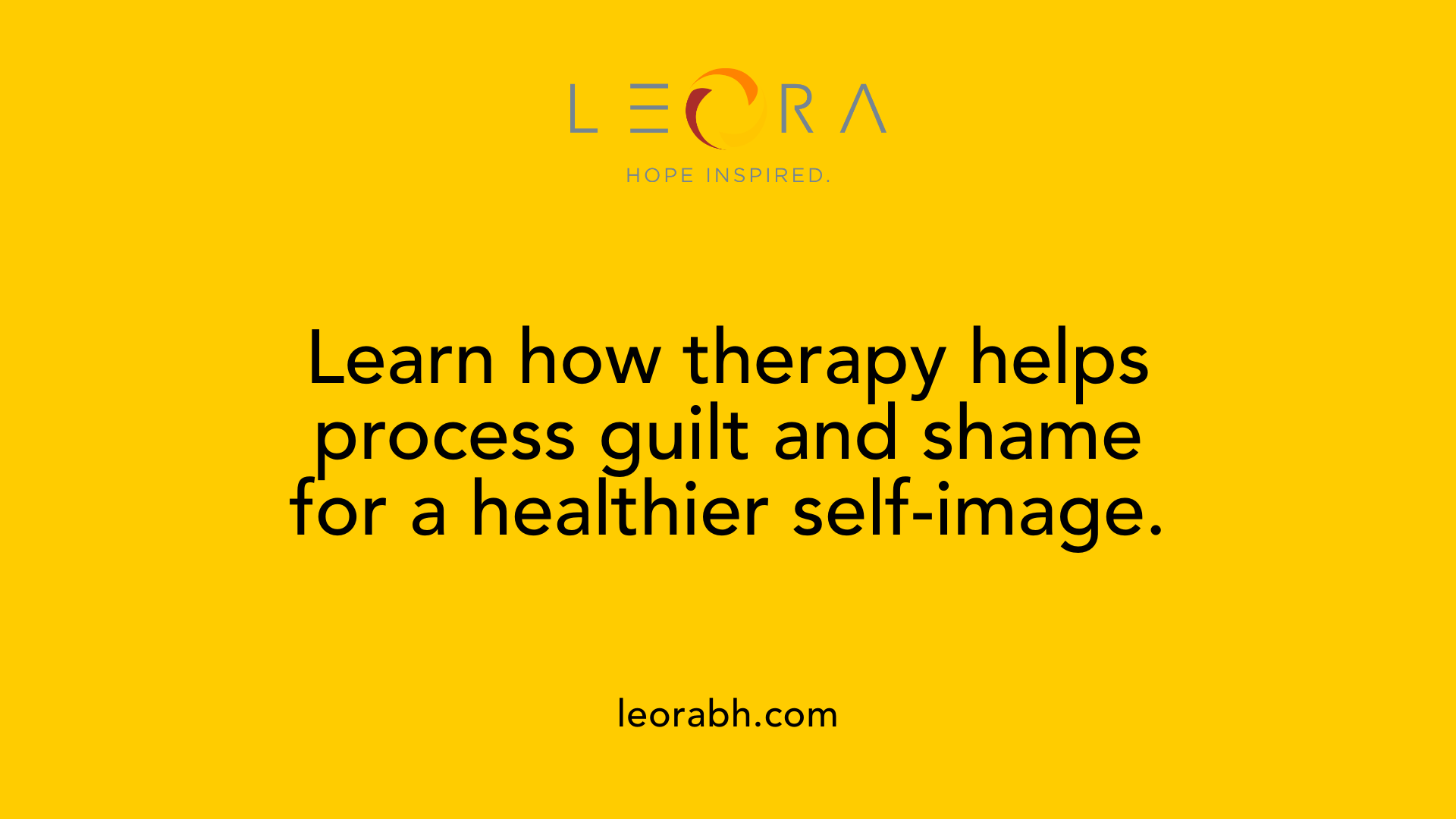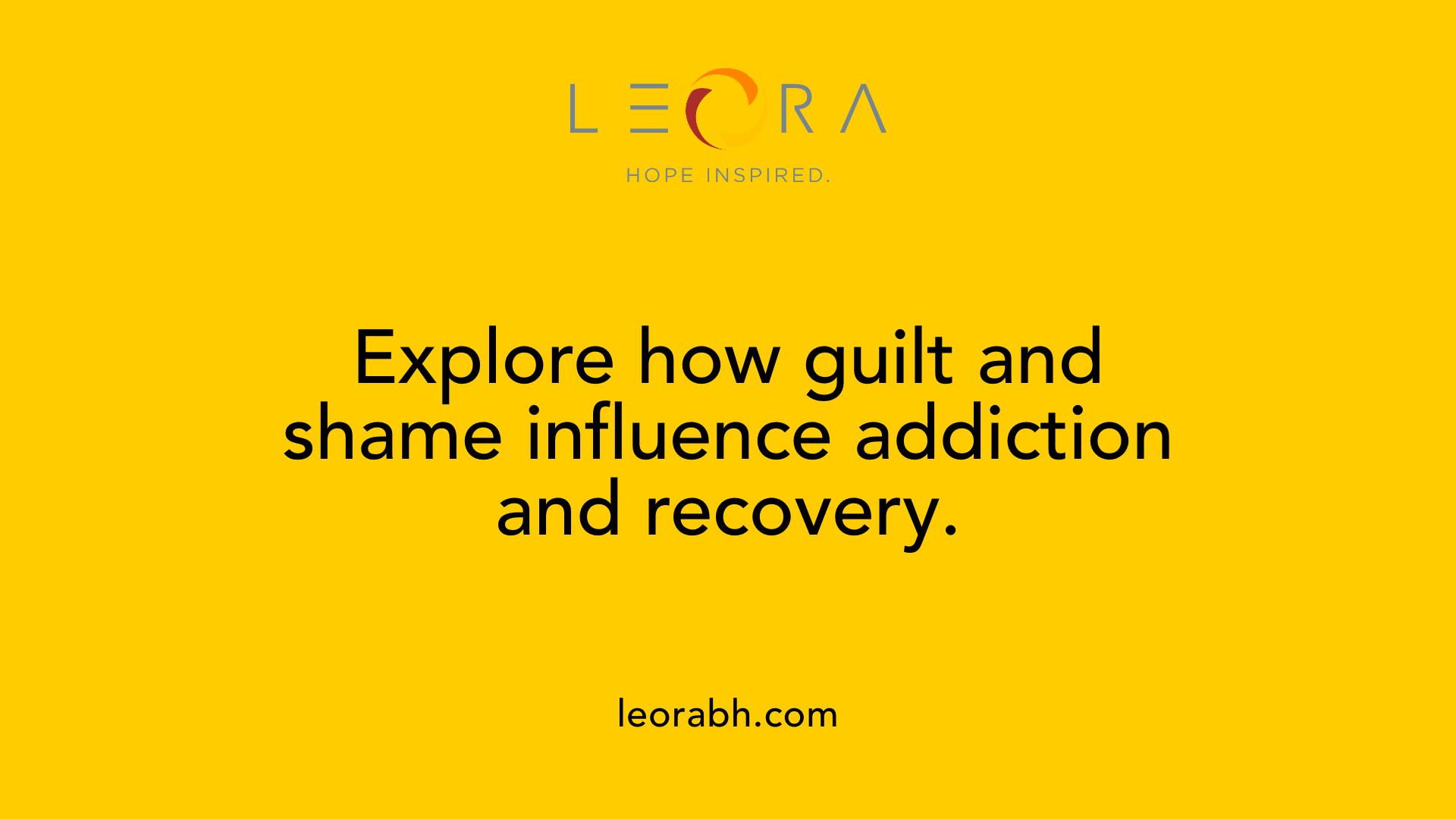How therapy helps process guilt and regret from substance use
Healing from the Past: The Role of Therapy in Overcoming Guilt and Regret
Understanding Emotional Challenges in Addiction Recovery
Recovery from substance use disorder is a complex journey that involves addressing not only physical dependence but also deep-seated emotional experiences. Among these, guilt and regret are common emotions that can either motivate positive change or hinder recovery. Recognizing the importance of therapeutic intervention in processing these emotions is crucial for fostering long-term sobriety and emotional well-being.
Types of Therapies Used in Addiction Treatment

What types of therapy are used in addiction treatment?
Addiction treatment employs a variety of evidence-based approaches designed to address the complex psychological, emotional, and behavioral aspects of substance dependency. Cognitive Behavioral Therapy (CBT) is frequently used to help individuals identify and modify harmful thought patterns that lead to substance use. Motivational Enhancement Therapy (MET) focuses on boosting motivation to change and sustain recovery.
Twelve-Step Facilitation (TSF) incorporates the principles of programs like Alcoholics Anonymous, emphasizing accountability and peer support. Other therapeutic modalities include interpersonal therapy, which enhances social and relationship skills, and relapse prevention strategies aimed at maintaining long-term sobriety.
In addition to these, certain innovative approaches such as art therapy, equine-assisted therapy, and drama therapy provide creative outlets for emotional expression and processing. Relaxation techniques, meditation, and sleep therapy help manage stress and improve overall well-being.
Trauma-focused therapies are crucial for individuals whose substance use is linked to past traumatic experiences. Family therapy and support groups enable loved ones to participate in the recovery process, fostering a supportive environment.
These therapies are delivered across multiple settings to accommodate individual needs. Inpatient programs provide intensive treatment within a controlled environment, ideal for severe cases. Outpatient and day treatment options allow individuals to integrate recovery with their daily lives while still receiving comprehensive care.
Overall, a personalized combination of therapy types allows for holistic treatment, addressing both mind and body, and promoting sustainable recovery.
The Therapeutic Process of Handling Guilt and Shame

How can therapy help in processing guilt and shame associated with substance use?
Therapy plays a vital role in helping individuals navigate the complex emotions of guilt and shame linked to substance use. It offers a safe, non-judgmental space where clients can openly explore their feelings, understanding the roots of their emotional turmoil.
Various therapeutic methods are effective in addressing these emotions. For instance, cognitive-behavioral therapy (CBT) helps challenge distorted thought patterns that fuel guilt and shame. Techniques such as cognitive processing therapy (CPT) or Eye Movement Desensitization and Reprocessing (EMDR) assist clients in reprocessing traumatic memories and reducing emotional distress.
Therapy also emphasizes self-compassion and acceptance. It guides individuals to forgive themselves and make amends where possible, fostering a sense of responsibility without excessive self-punishment. This process can lead to a healthier self-image and promote emotional healing.
Addressing shame involves recognizing its origins, which often lie in feelings of inadequacy or flawfulness. Therapeutic approaches work to build resilience, develop a sense of self-worth, and teach healthy coping strategies.
Ultimately, professional support helps prevent negative behavioral patterns, encourages healthier self-perceptions, and sustains long-term recovery. These approaches recognize that both guilt and shame can be managed and transformed into constructive forces for personal growth.
How do underlying trauma, moral conflicts, and societal pressures influence guilt and shame?
Many individuals experience guilt and shame rooted in past trauma, moral conflicts, or societal expectations. Therapy aims to dig into these underlying issues to uncover their influence on current emotional states.
Trauma may leave lasting scars that perpetuate feelings of unworthiness or remorse. Addressing this with trauma-informed care allows clients to process pain and reduce emotional burden.
Moral conflicts, such as feelings of having betrayed personal or societal values, often involve deep self-judgment. Therapy helps reconcile these conflicts through narrative reshaping and moral validation.
Societal pressures—like stigma or cultural expectations—can intensify feelings of shame. Therapeutic support offers a space to challenge these external judgments, reinforcing a positive self-identity.
By understanding and working through these influences, individuals can develop more compassionate self-attitudes, promote forgiveness, and build resilience against shame and guilt.
How do therapies challenge irrational beliefs and promote self-compassion?
Therapies like CBT aim to identify and challenge irrational beliefs that sustain guilt and shame. Clients learn to recognize cognitive distortions—such as catastrophizing or all-or-nothing thinking—that magnify negative feelings.
Challenging these beliefs helps clients see their situations more realistically, reducing feelings of worthlessness or excessive blame. It encourages a balanced perspective that considers progress, effort, and resilience.
Simultaneously, therapy emphasizes self-compassion—treating oneself with kindness and understanding despite past mistakes. Practices like mindfulness and self-acceptance exercises help foster this mindset.
Developing self-compassion empowers individuals to forgive themselves, release shame, and embrace their capacity for change. When individuals treat themselves with the same kindness they offer others, it enhances emotional well-being, promotes healing, and supports sustained recovery.
These therapeutic strategies work together to reshape clients' emotional narratives, helping them rebuild a positive self-identity and fostering healthier, more compassionate attitudes toward themselves.
Strategies Promoting Emotional Recovery
What therapeutic strategies are effective for emotional recovery from guilt, shame, and regret related to substance use?
Healing from the emotional wounds of guilt, shame, and regret in substance use recovery involves several therapeutic approaches. Central to these strategies is fostering self-compassion and self-forgiveness. These practices help individuals challenge negative self-perceptions and cultivate a kinder view of themselves, which is essential for emotional healing.
Addressing feelings of guilt entails recognizing past behaviors, taking responsibility, and, when appropriate, making amends. This process can alleviate ongoing remorse and support a move towards self-acceptance. Importantly, understanding the distinction between guilt and shame is crucial — guilt focuses on specific actions and can motivate positive change, while shame can lead to feelings of worthlessness.
Therapies like cognitive-behavioral therapy (CBT) and narrative therapy are particularly effective. They assist individuals in reframing their thoughts, re-examining past experiences, and developing a more positive self-identity. These approaches often include techniques such as mindfulness, self-compassion exercises, and emotional regulation skills.
Involving supportive relationships, such as family members and peer support groups, offers validation and encouragement. These social networks create a safe space for expressing feelings and gaining perspective, reinforcing progress in recovery.
Overall, confronting and processing guilt and shame—rather than suppressing them—releases their destructive power. This, combined with efforts to forgive oneself and redefine personal narratives, promotes emotional resilience and supports long-term sobriety.
The Role of Self-Perception and Narrative in Recovery
How does therapy assist in overcoming emotional challenges like guilt and regret during addiction recovery?
Therapy plays a crucial role in helping individuals navigate complex feelings such as guilt and regret that often arise during recovery from addiction. It offers a safe and supportive environment where clients can openly explore their emotions without judgment. Therapeutic techniques like Cognitive Behavioral Therapy (CBT) and Dialectical Behavior Therapy (DBT) focus on identifying and challenging distorted thoughts, especially those related to self-blame and shame.
Through therapy, individuals learn to reframe their past actions, moving from a narrative of shame to one of growth and self-understanding. This process often involves developing empathy towards oneself and others, which can diminish feelings of worthlessness and foster self-forgiveness.
A significant aspect of therapy is guiding clients in making amends when appropriate, practicing mindfulness to stay present, and building a network of supportive relationships. These approaches support emotional resilience, helping individuals accept their past without letting it define their future. Overall, therapy enables recovering persons to turn their narrative into one of self-compassion, responsible growth, and renewed identity.
Understanding the Impact of Guilt and Shame on Addiction

Differentiating guilt and shame.
Guilt and shame are emotional responses often intertwined in the experience of addiction, but they have distinct characteristics. Guilt involves feeling remorseful over specific actions—such as neglecting responsibilities or hurting someone—prompting individuals to seek correction or amends. It tends to be focused on behaviors and can motivate positive change. In contrast, shame relates to a negative judgment about oneself, believing one is inherently wrong or unworthy. This deep-seated feeling can lead to self-isolation and feelings of worthlessness, which may hinder recovery.
During recovery, individuals frequently face these emotions as they recognize how their substance use has impacted themselves and others. While guilt can serve as a catalyst for taking responsibility and making behavioral changes, shame often contributes to feelings of unworthiness that impede efforts to heal and rebuild self-esteem.
Effects of shame on self-worth and behavior.
Shame can have particularly damaging effects on an individual’s mental health and recovery trajectory. It fosters self-isolation, increases anxiety, and may contribute to depression. These feelings can make people withdraw from support systems and relapse into substance use as a way to cope with overwhelming internal pain.
Research indicates that shame, if not addressed, becomes a barrier to effective treatment and can exacerbate feelings of being trapped in an ongoing cycle of addiction. This emotional state undermines motivation, reduces self-efficacy, and can increase the risk of relapse.
Guilt as a potential motivator for change.
Unlike shame, guilt often involves an active component—recognition of wrongdoing and a desire to make amends. It helps individuals acknowledge their past mistakes, take responsibility, and motivate reparative actions. In addiction recovery, guilt can inspire individuals to engage more fully in treatment, work on behavioral modifications, and rebuild relationships.
Therapeutic approaches like cognitive-behavioral therapy (CBT) and motivational interviewing focus on reframing guilt into constructive action, fostering self-awareness, and encouraging self-forgiveness. When managed well, guilt can serve as a powerful tool to promote healthier choices and strengthen commitment to sobriety.
Emotional management strategies in recovery.
Successful management of guilt and shame often involves developing self-compassion and narrative therapy techniques. These approaches help individuals reframe their past, foster empathy for themselves and others, and reshape negative self-perceptions.
Focusing on achievable goals and building a supportive community are also critical components. As individuals learn to regulate these complex emotions, they often experience increased motivation, better problem-solving skills, and greater prosocial behaviors—all vital for sustained recovery.
| Emotion | Impact on Recovery | Management Strategies | Effect on Behavior |
|---|---|---|---|
| Guilt | Can motivate responsibility and change | Reframing thoughts, making amends, self-forgiveness | Promotes accountability and repair efforts |
| Shame | Can cause withdrawal and hopelessness | Building self-compassion, narrative therapy, mindfulness practices | May hinder progress if unaddressed |
Understanding these emotional patterns enables a more nuanced approach to therapy, emphasizing the importance of fostering guilt’s constructive aspects while reducing shame’s harmful effects.
Importance of Professional Support and Support Networks
How does therapy assist in overcoming emotional challenges like guilt and regret during addiction recovery?
Therapy plays a crucial role in helping individuals manage the complex emotions associated with addiction recovery, especially guilt and regret. These feelings often stem from recognizing the harm caused during active substance use, and they can hinder progress if not addressed properly.
Therapeutic interventions such as Cognitive Behavioral Therapy (CBT) and Dialectical Behavior Therapy (DBT) provide a safe, supportive environment where individuals can explore their feelings without judgment. These techniques help challenge distorted thought patterns, such as blaming oneself unfairly, and work to reframe negative beliefs about oneself.
A primary focus of therapy is cultivating self-compassion and empathy. By understanding that past actions do not define a person's worth, individuals can begin to forgive themselves. Therapy also encourages the practice of mindfulness and self-awareness, which helps in recognizing emotions like guilt and shame early, preventing them from becoming overwhelming.
An important part of therapy is guiding clients through making amends when appropriate, which can foster a sense of responsibility and closure. Additionally, therapy offers tools for emotional regulation, helping individuals manage feelings of shame that may otherwise lead to self-isolation or relapse.
Overall, therapy supports emotional healing by promoting healthier coping mechanisms, strengthening self-esteem, and fostering personal growth. This process empowers individuals to move forward, embracing a new self-identity rooted in resilience and hope.
Holistic Approaches and Continuous Support in Healing

How do mindfulness and meditation help reduce shame?
Mindfulness and meditation practices are effective tools in lowering feelings of shame among those in recovery. These techniques promote present-moment awareness, helping individuals observe their thoughts and emotions without judgment. By cultivating self-compassion and fostering a non-reactive mindset, mindfulness reduces the tendency to internalize negative judgments about oneself. Studies published in the Journal of Mindfulness have shown that regular practice can lead to decreased shame, promoting more positive self-attitudes that support emotional healing.
What role do creative therapies and physical activity play in recovery?
Creative therapies such as art, music, and dance provide expressive outlets for processing complex emotions like guilt, regret, and guilt. These activities encourage self-exploration and help rebuild a positive self-image. Physical activity also plays a vital part by releasing endorphins, improving mood, and reducing stress. Engaging in regular exercise can help diminish feelings of shame and self-isolation, encouraging a sense of accomplishment and connection. Combining these approaches fosters holistic healing, addressing emotional, psychological, and physical wellness.
Why is ongoing support and community involvement important?
Aftercare and ongoing community support are fundamental in maintaining recovery and preventing relapse. Support groups, counseling, and peer networks offer a safe space for sharing experiences and gaining encouragement. The National Council on Addiction and Drug Dependencies (NCADD) emphasizes that a strong support network correlates with sustained sobriety and emotional resilience. Continued participation in therapy or support groups helps individuals reinforce healthy habits, process unresolved guilt and shame, and develop a sense of belonging.
Core characteristics of substance use disorders
Understanding addiction involves recognizing its core features, often summarized as the 4 C's:
| Characteristic | Description | Additional Details |
|---|---|---|
| Compulsion | An inability to stop using despite negative outcomes | Leads to behaviors that are destructive to oneself and others |
| Control | Difficulty resisting urges or limiting use | Even when wanting to cut back, individuals struggle to do so |
| Craving | A strong desire to use substances | Can trigger relapse during recovery |
| Consequences | The negative results of ongoing substance use | Includes health issues, social problems, legal troubles |
These aspects illustrate the persistent and complex nature of addiction, affecting people from all backgrounds.
Summary and Final Thoughts

What role does therapy play in addressing guilt and regret in recovery?
Therapy is fundamental in helping individuals process and manage feelings of guilt and shame associated with substance use and addiction. Evidence-based approaches such as cognitive-behavioral therapy (CBT) and dialectical behavior therapy (DBT) challenge distorted thoughts, promote emotional regulation, and foster mindfulness skills, which are crucial in evolving self-perceptions. Family therapy also plays a vital role by involving loved ones, helping to repair relationships, and supporting the individual’s journey toward self-acceptance.
Through therapy, individuals learn to reframe their narrative, develop self-empathy, and rebuild their sense of worth. Techniques like narrative therapy enable individuals to reclaim their past, reshape their self-identity, and focus on future-oriented growth. Practicing self-compassion during therapy reduces destructive shame, while acknowledging guilt encourages responsibility and reparative actions. Furthermore, therapy supports establishing healthy self-blame—scaffolding rather than retributive—that empowers recovery efforts.
Why ongoing emotional work and support are essential?
Recovery from addiction extends beyond initial treatment. Continuous emotional work involves maintaining self-awareness, practicing mindfulness, engaging in support groups, and fostering a supportive environment. Ongoing support networks, including peer groups and counseling, reinforce progress by providing understanding, accountability, and encouragement.
Supporting oneself emotionally also encompasses setting achievable goals, practicing forgiveness, and letting go of uncontrollable past actions. Cultivating empathy, self-compassion, and resilience helps sustain long-term sobriety and emotional health.
Supportive environments that normalize conversations around guilt, shame, grief, and emotional healing help reduce stigma and promote healing. These inclusive spaces allow individuals to share their experiences openly, fostering a sense of belonging and hope.
How understanding the 4 C’s of addiction informs recovery?
The core properties of substance use disorders—the 4 C’s—shape the recovery approach. They include:
| Aspect | Description | Impact on Recovery |
|---|---|---|
| Compulsion | Inability to resist substance use despite adverse effects | Emphasizes need for behavioral therapy and relapse prevention |
| Control | Loss of voluntary control over substance intake | Highlights importance of skill-building and self-efficacy |
| Craving | Intense desire to use substances | Calls for mindfulness and craving management techniques |
| Consequences | Negative outcomes from ongoing use | Reinforces motivation to change through awareness of impact |
Understanding these concepts helps tailor interventions that address the persistent and complex nature of addiction, ultimately fostering resilience and recovery.
Final thoughts
Recovery from addiction is a deeply personal and dynamic process that encompasses emotional, psychological, and social dimensions. Addressing feelings like guilt, shame, regret, and grief is crucial. Therapy provides essential tools for reframing narratives, developing empathy, and fostering self-acceptance.
Continuous emotional work, supported by professional treatment, peer groups, and a strong support network, creates a foundation for lasting change. Recognizing that emotions such as guilt can motivate positive behavior, while shame can hinder progress, encourages tailored approaches that nurture self-compassion and accountability.
Overall, the journey involves learning to manage and transform these powerful emotions into pathways for growth—making sustained recovery possible. Engaging in regular self-assessment, embracing ongoing support, and practicing compassion are vital steps toward healing and long-term well-being.
The Path to Emotional Healing and Lasting Sobriety
In conclusion, therapy plays a pivotal role in helping individuals process guilt and regret associated with substance use. By providing a supportive environment to challenge negative beliefs, develop self-compassion, and reconstruct personal narratives, therapeutic approaches facilitate meaningful emotional healing. Addressing these emotional challenges not only promotes psychological well-being but also strengthens the foundation for sustained recovery. Continued engagement with professional support, family, and community networks remains essential for overcoming the emotional hurdles of addiction. Embracing a holistic approach—integrating evidence-based therapies, mindfulness practices, creative therapies, and ongoing support—can guide individuals toward a healthier, more fulfilling life free from the burden of past guilt and remorse.
References
- National Helpline for Mental Health, Drug, Alcohol Issues - SAMHSA
- Managing shame and guilt in addiction: A pathway to recovery
- How to Overcome Guilt and Shame in Recovery | AAC
- Overcoming Guilt, Regret, and Shame in Addiction Recovery
- Grief and Substance Abuse: Understanding the Connection and ...
- Overcoming Guilt in Recovery: Healing & Moving Forward
- How to Cope and Overcome Guilt and Shame During Recovery
- How to Overcome Guilt and Shame in Recovery | AAC
- Managing shame and guilt in addiction: A pathway to recovery
Find Your Inner Light
Related Articles
Schedule an Assessment
Leora Behavioral Health provides comprehensive treatment services, including ambulatory detox, mental health IOP, and SUD IOP, to support your journey toward lasting recovery.
Our caring team will guide you through the admissions process and create a personalized treatment plan tailored to your unique needs. We welcome walk-ins. If you or a loved one is struggling, reach out today. We’re here to help.


.svg)




.svg)
.svg)
.svg)
.svg)
